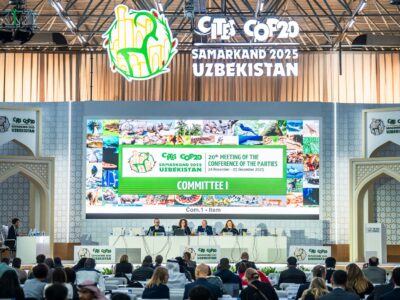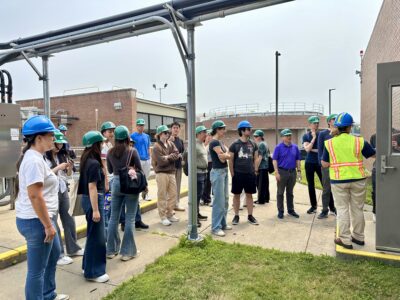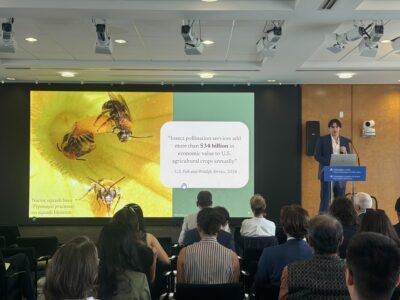
1. What is your current job?
I am the Manager of Grenada Marine Protected Areas (GMPA), which is a Unit within the Fisheries Division of the Ministry of Agriculture, Lands, Forestry, Fisheries and the Environment. Currently, there are three designated Marine Protected Areas on the island of Grenada, but only one is being actively managed. Apart from providing technical expertise, I actively manage a staff of eight persons and several programs geared towards institutional advancement of the Marine Protected Areas.
2. Do your current job responsibilities align with the professional goals that you originally had when you began the Master of Public Administration in Environmental Science and Policy program (MPA-ESP)?
Coming from a scientific background, and having worked in a multilateral institution specifically as a policy analyst, some of my current responsibilities fall in line with my professional goals prior to entering the MPA-ESP program. However, these goals have been further enriched by the skills I acquired while in the program, in particular, my management skills. I am now able to ‘marry’ the science with the management and policy aspect of my job, which enables me to deliver more effectively.
3. What skills has the MPA-ESP program taught you that you think have proven useful to your current position?
Efficient management skills are critical for my position. Collaborating with peers on projects while in the ESP program has certainly proven useful. Effective time management, flexibility, and the ability to work in a cohesive manner with partners are just a few of the skills I was able to hone while in the ESP program. I now put these skills into practice at the work place, and I must say they have proven to be beyond useful.
4. What skills and tools do you hope to acquire through this job?
I intend to strengthen my management and interpersonal skills, through my interaction with staff, stakeholders and donors. Community involvement and development is an important facet of Marine Protected Area management, and strong interpersonal skills are fundamental for community engagement. So far, I have been able to hone some of these skills, but there are areas that I look forward to improving as I continue in my position. I look forward to increasing my knowledge on Community Based Organizations (CBOs) functions and operation, as it is a core part of managing Marine Protected Areas.
5. How has collaborating with your fellow students in class projects benefited you professionally and personally?
My MPA-ESP class consisted of persons from an array of professions, educational backgrounds and cultures. The skill set in my class was very diverse and specialized – personally, it was a gigantic networking pool that I learned a lot from. Professionally, I feel that whatever area of expertise I need help on; I can reach out to one of my colleagues from the ESP Program who would be at position to provide me with guidance on the topic.
6. What kinds of environmental initiatives do you hope to start in your new position?
My team is working on a Junior Rangers Program, an environmental initiative geared towards producing environmentally conscious young people between the ages of 12 – 18. The program will engage participants in a series of environmentally oriented projects and activities such as; waste audits at schools, replanting of trees in deforested areas, classes on marine science; to name a few. It has been successfully implemented in Bonaire, and we are working on applying the model in Grenada, hoping to garner similar success.
7. How do you intend to utilize your degree from the MPA-ESP program to further your career?
My ultimate goal at the moment is to work in the area of Sustainability Management, Environmental Advocacy and Governance. The MPA-ESP program coupled with my previous experience has placed me on an excellent path to achieve this. I am also embarking on a small-scale renewable energy project geared towards aiding small farms to reduce their waste and energy costs. A component of this project requires rigorous policy analysis, for which the Program has provided me the necessary tools.
****
Students in the MPA in Environmental Science and Policy program enroll in a year-long, 54-credit program offered at Columbia University’s School of International and Public Affairs, in partnership with the Earth Institute.
Since it began in 2002, the MPA in Environmental Science and Policy program has given students the hands-on experience, and the analytical and decision-making tools to implement effective environmental and sustainable management policies. The program’s 741 graduates have advanced to jobs in domestic and international environmental policy, working in government, private and non-profit sectors. Their work involves issues of sustainability, resource use and global change, in fields focused on air, water, climate, energy efficiency, food, agriculture, transportation and waste management. They work as consultants, advisers, project managers, program directors, policy analysts, teachers, researchers and environmental scientists and engineers.
Visit our website for more information: http://mpaenvironment.ei.columbia.edu/



